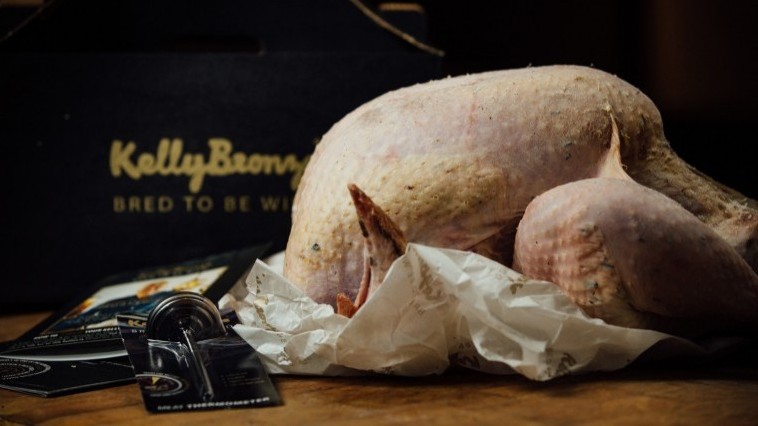Whole turkey sales at Christmas are now holding their own after a big swing to crowns and breast joints at major retailers over the past few years, according to Paul Kelly, managing director of Farmgate Hatcheries, writing in his annual newsletter to poult customers.
“This swing does seem to have slowed or even stopped,” he says commenting on trends in December.
Kelly Turkeys’ own farmgate sales at Danbury in Essex show 72% sold as whole birds and 28% as crowns or joints. “Our retail sales have stayed at these percentages for the past four years – but in the major retailers it has been the opposite. I am not sure why, but my gut feeling is they do not promote the whole bird as the obvious choice, and it gets lost in the plethora of crowns and joints.”
However, he urged traditional turkey producers not to ignore the market for joints and added-value products. “This is a market you must get into in order to satisfy demand – and it is very profitable. Crowns and joints were averaging about £16 per kg at retail last year.”
Whole bird sales to butchers held up well, but he cautioned again about imported turkey ‘butterflies’ that, he says, are very cheap and with inherent big gross margins continue to hinder sales of traditional British turkeys.
For farmers ordering poults for this year he recommends buying 33% as-hatched and 66% sexed hens to give a spread of weights to supply most order books.
He says their small breed stags deliver better eating quality than large strain hens which are bred for very lean meat and have bigger muscle fibres that tend to be drier and flakier when eating. “Explain this to your customers – they cannot ignore eating quality.”
After a price reduction in 2015 and no increase in 2016, poult prices from FarmGate Hatcheries are rising by 3-5% to take account of 10% higher feed costs, wage rises for seasonal workers and general inflation.




